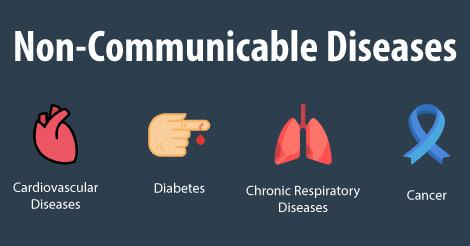Non-communicable diseases (NCDs) are today among the world’s largest killers. In Uganda, 33% of total deaths are due to NCDs and for every Ugandan citizen, the probability of dying prematurely from one of the four main NCDs (cardiovascular diseases, cancers, chronic respiratory diseases and diabetes) is 22%. Children, adults and the elderly are all vulnerable to the risk factors contributing to NCDs. The risk factors include unhealthy diets, physical inactivity, and exposure to tobacco smoke or the harmful use of alcohol.

There is also a lack of awareness about NCDs among young people, and limited access to screening and diagnostic services, which have contributed to the increasing burden of NCDs in this population. Furthermore, the majority of African countries, including Uganda are ill-prepared to deal with the rising burden of NCDs due to limited resources, weak health systems, and competing health priorities such as infectious diseases.
Our Approach
Innovations for Development (I4DEV) has realised the gap in addressing non-communicable diseases among young people in Uganda and to that end is focused on improving youth response to NCDs through:
- Strengthening the health system to deliver high-quality NCD services. We target both public and private Primary Health Care (PHC) facilities to strengthen the capacity of selected healthcare providers to create youth-friendly and focused NCD care services and provide essential information and materials to enhance the quality of NCD care and prevention services.
- Building demand for services and awareness of NCDs among communities through the use of NCD ambassadors who are based in the target communities.
- Organizing community-led advocacy to create an enabling environment that will reduce people’s susceptibility to NCDs.
- Conduct research to generate evidence on what works, why and how as well as design appropriate strategies to enhance access to evidence from other areas with an intention of building evidence-based practices by all.
